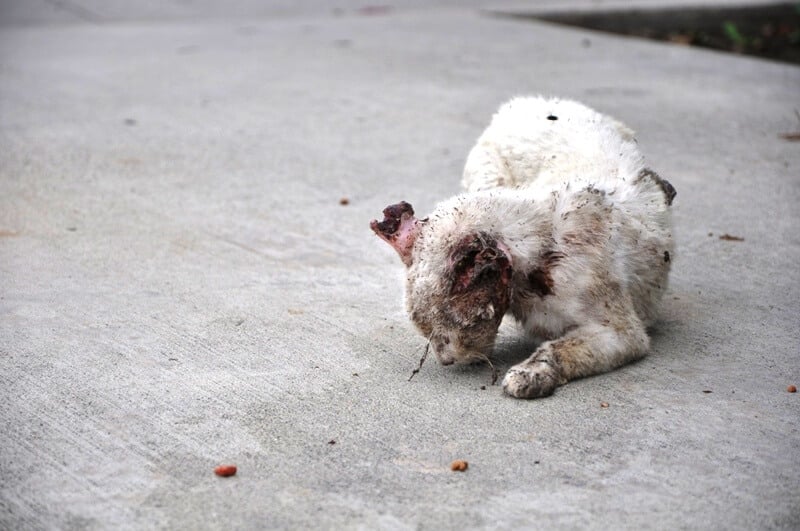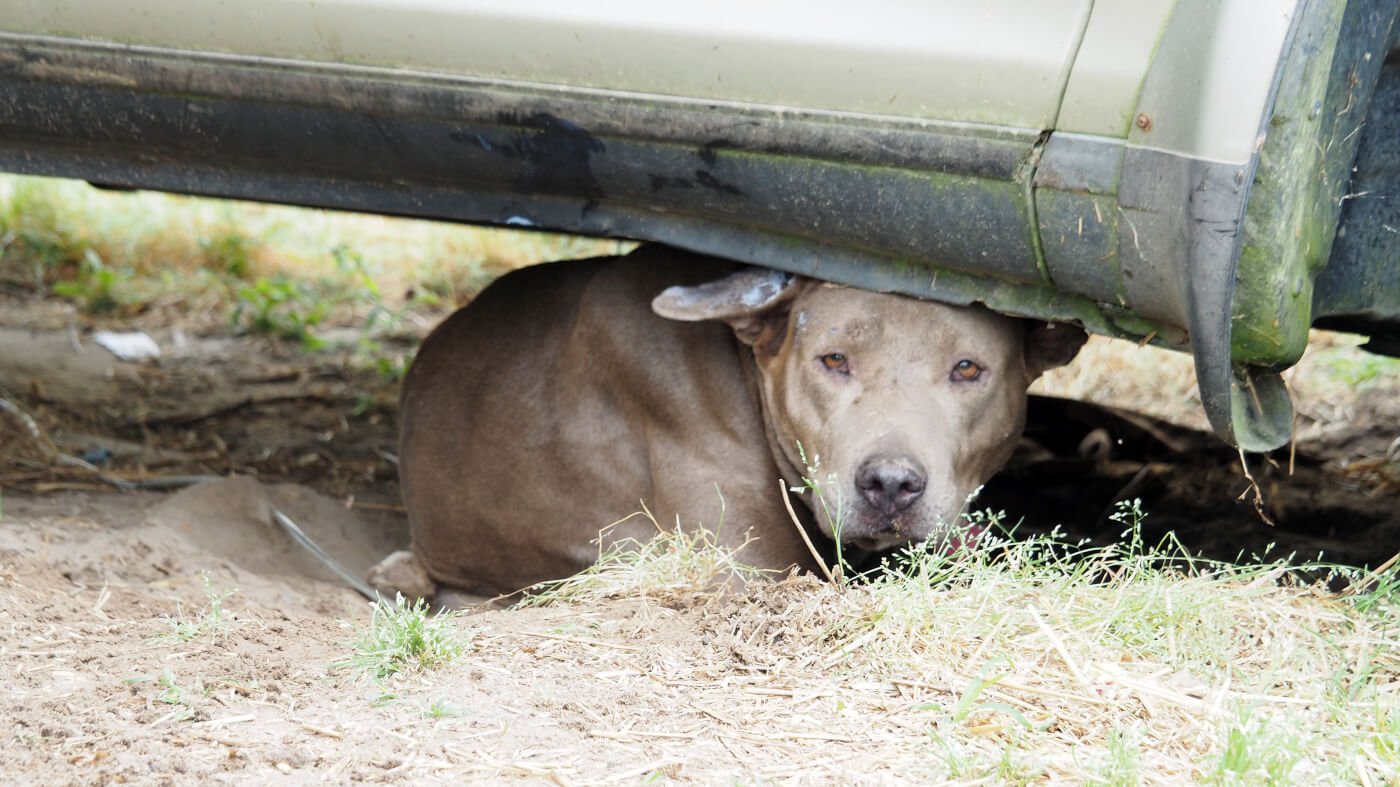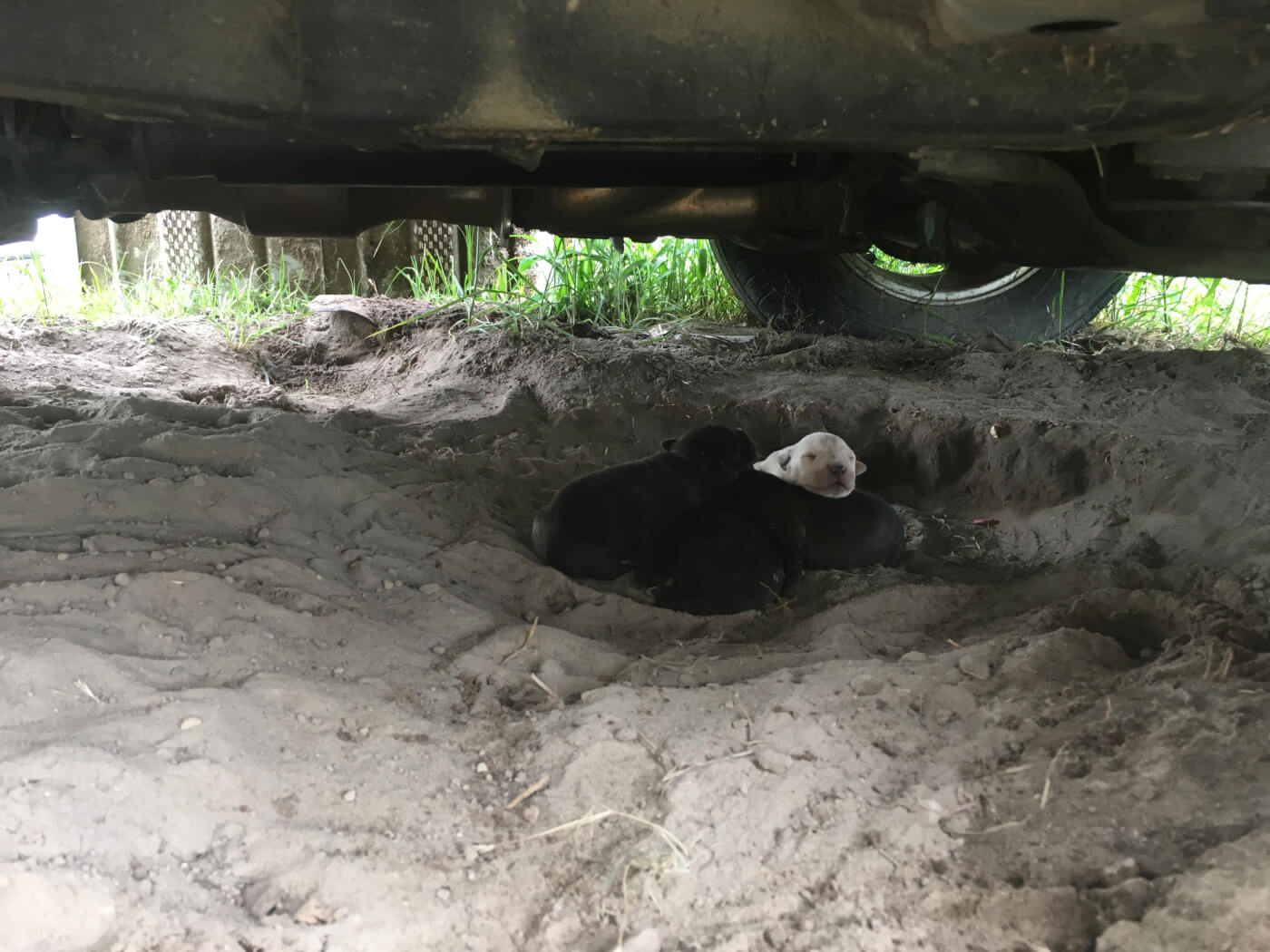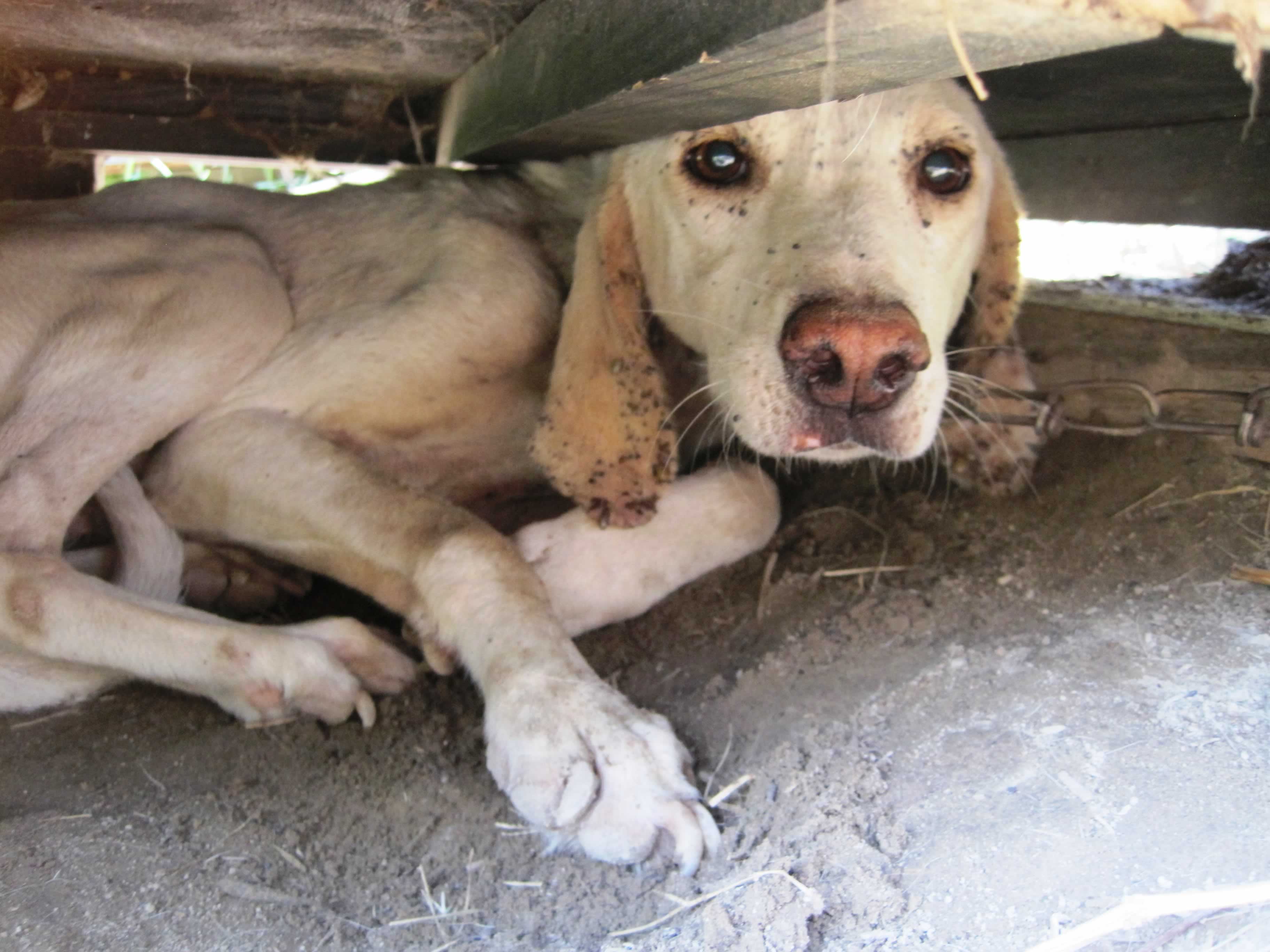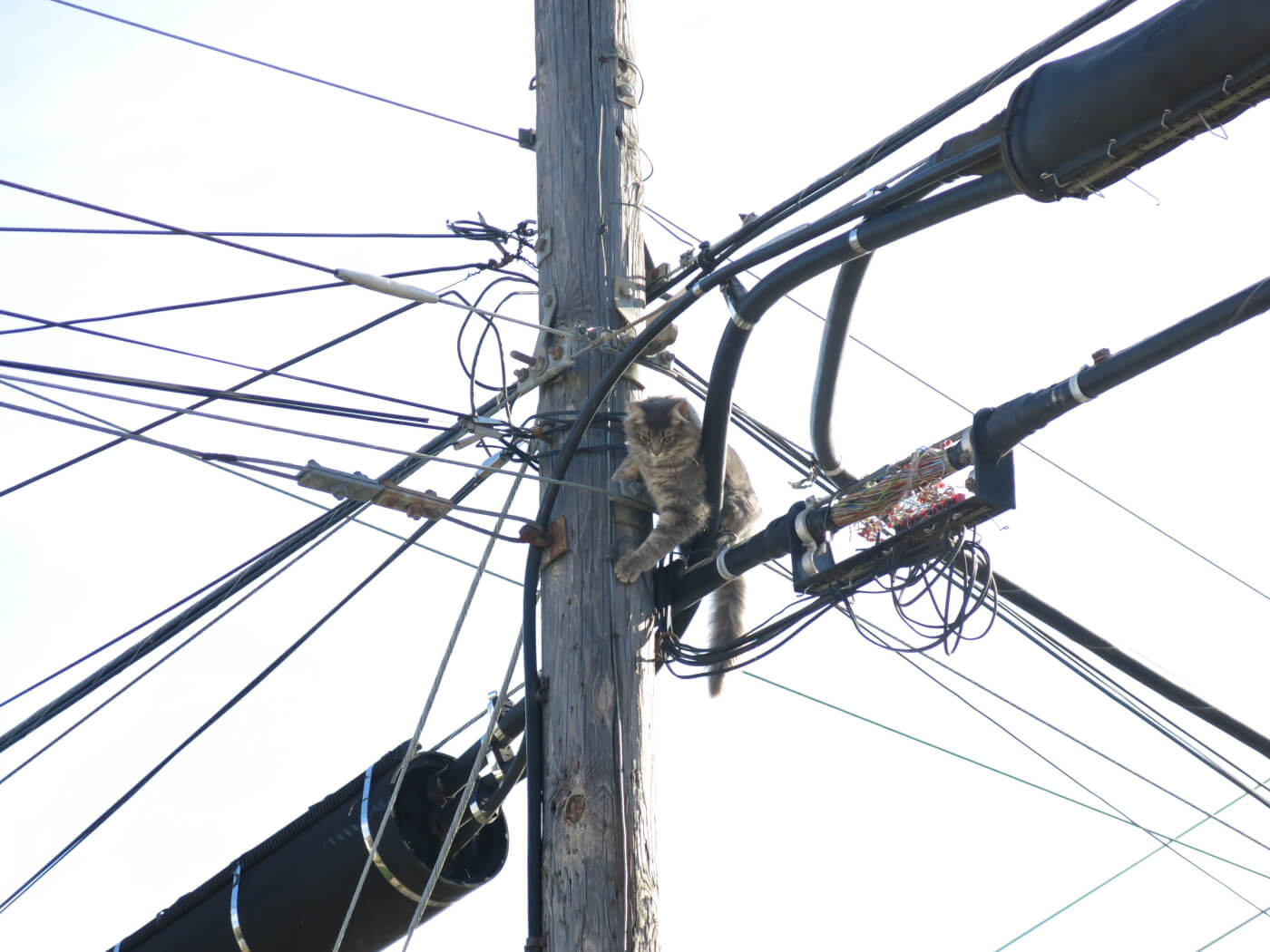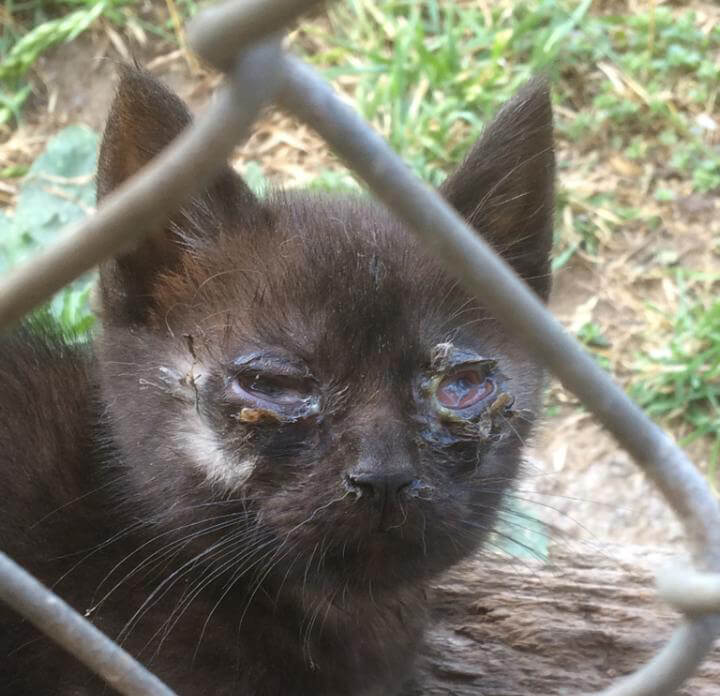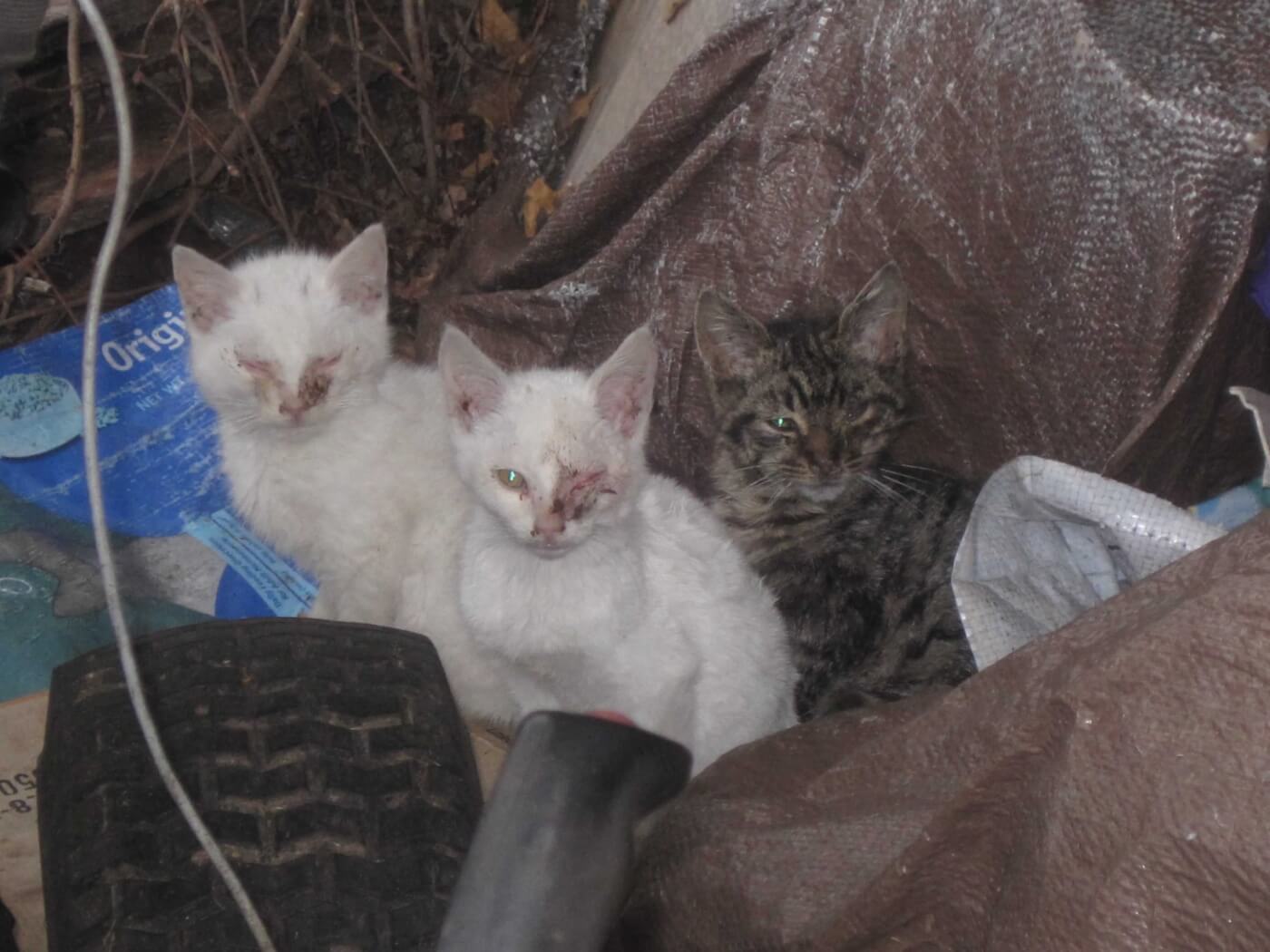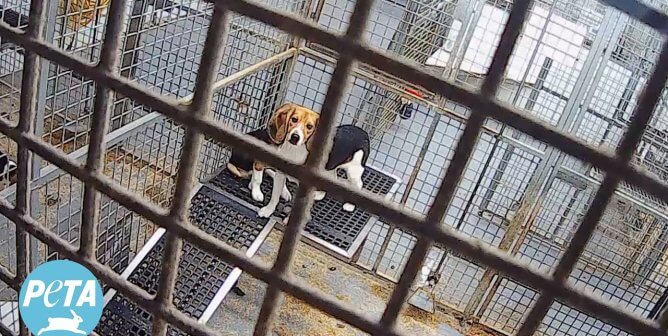Is your local shelter refusing animals? Shelters are supposed to be safe havens for animals who have nowhere else to go, but in an increasing number of communities across the country, good Samaritans who find strays and desperate citizens who cannot keep their animals are hearing the same responses when they try to take animals to shelters: “Sorry—we’re full,” or “We’ll have to put you on a waiting list.” Some shelters require people to make appointments, wait for months, or pay high “surrender fees,” or they drastically reduce their hours or even encourage people to leave cats on the streets, often illegally—all in a misguided attempt to keep animals out.
Why? Shelters are under extreme pressure by laypeople who are opposed to euthanasia under virtually any circumstances and at any cost. They harass and vilify shelter workers who make the difficult but compassionate decision to euthanize some animals in order to keep their doors open to every animal in need.
In response, an alarming number of shelters—in some cases, even taxpayer-funded ones—are choosing to operate like exclusive clubs or boutiques instead of refuges for animals in need. When shelters make it difficult for people to surrender animals, closing their doors and refusing to help, they leave animals with nowhere to turn. Many are abandoned on the streets, where they starve and die in agony of untreated diseases or injuries. Others remain in the hands of people who don’t want them and who may mistreat, neglect, or even kill them.
If your local shelter has adopted this harmful practice and started implementing restrictions or turning away animals, please speak up! The basic steps are simple—documenting your experiences, gathering support, and making your case—and your involvement can make a world of difference to the animals in your community who need you the most. Read on to learn how you can help, and follow the links in each section for helpful sample statements and letters.
Document Your Experience
If a shelter has refused to accept an animal from you, required you to pay a surrender fee, put you on a waiting list, or instructed you to abandon an animal, carefully document everything that happened. Take photos and video, if you can, to help make your case when you share the evidence with elected officials and the media. Be sure to document the following:
- The name and address of the facility
- The time and date of your call or visit
- The name of the person you spoke with
- What you were told (an exact quote, if possible)
- Whether you spoke with a supervisor and, if so, what you were told
- What happened to the animal who needed help
Gather Community Support
Collecting statements and support from others who have been negatively affected by a shelter’s policies will significantly bolster your case when you meet with officials. If you know of other people who have encountered difficulties in surrendering an animal to a shelter, interview and take written statements from them, then help them take their cases to local and state elected officials as well as to the media.
Click to view a sample statement
Sample Statement From a Member of the Community
On [date] at [time], I, [full name], attempted to take a [stray/unwanted] [type of animal] to [name of shelter], located at [address of shelter]. Shelter representative [name of person you talked with] told me [insert remarks]. I [insert description of the animal’s fate]. Putting up barriers to taking animals in need to the shelter puts them in danger of being abandoned, neglected, and abused. I urge [name of shelter] to change this policy and accept all animals, without fees or restrictions.
Meet with local veterinarians to explain the situation at the shelter. Veterinarians may be especially sympathetic—not only because they care about animals but also because in communities where shelters restrict intakes, veterinary offices and animal hospitals often become popular places for people to abandon animals. If you find veterinarians who seem understanding, ask them for a statement and encourage them to get involved by helping you lobby for open-admission policies at the shelter. Be sure to keep your meetings brief and respectful, as most veterinarians are extremely busy, and follow up with a handwritten thank-you note. Take the time to form lasting relationships with sympathetic veterinarians, as they may be able to help if you find an animal who is turned away from the shelter.
Click to view a sample statement from a veterinarian
Sample Statement From a Veterinarian
As a veterinarian practicing in [name of city/county], I care for animals in our community every day. That’s why it’s extremely troubling to learn that [name of shelter] is making it difficult for people to surrender homeless, stray, and unwanted animals by [list tactics, such as turning animals away, putting people on waiting lists, etc.]. With these practices in place, many animals end up neglected, abused (sometimes fatally), or abandoned on the streets to starve or be killed in traffic by people who can’t or don’t want to care for them. [If applicable:] People have even abandoned unwanted animals at my clinic, and we are seeing an increase in injured strays brought in by good Samaritans, with no one to pay for their care. I urge the shelter to keep its doors open to every animal in need, without waiting lists, fees, or other restrictions. Thank you for your attention.
Sincerely,
[Name]If you know of local businesses where stray and homeless animals congregate, ask the owners if they would be willing to sign a statement and get involved. Their concerns may have significant influence with elected officials.
Click to view a sample statement from a business owner
Sample Statement From a Business Owner
As the owner of [name of business], I have noticed a significant increase in the number of stray animals around my business, which I believe is a direct result of [name of shelter] restricting its intake of these animals. [List some concerns here, e.g., cats fighting, spraying urine, or raising kittens in Dumpsters; stray dogs defecating on the sidewalk, frightening customers, etc.]. Not only is this situation creating a nuisance and a potential danger, it is also causing animals to suffer. Our community’s taxpayers and animals deserve a shelter that keeps strays off the street and works to find them homes.
Sincerely,
[Name]Make Your Case
Once you have gathered statements and evidence, request a meeting with the shelter director by writing a polite letter. Express your support of open-admission policies, including providing euthanasia services when necessary. If the director is open to revising the shelter’s policies, wonderful! Your legwork has paid off. If not, don’t worry—you have brought this important issue to his or her attention, and you can now take your case to elected officials and the media.
Click to view a sample letter to the shelter director
Sample Letter to the Shelter Director
Dear [Mr./Ms.] [Name],
I hope you are well. I am deeply concerned to learn that [name of shelter] is apparently making it difficult for members of the public to surrender animals to your facility, by [list tactics the shelter is using, such as putting people on a waiting list, charging surrender fees, and/or creating other obstacles]. [Include examples of your own or others’ experiences with being turned away.]
I understand that the shelter is striving to avoid euthanizing animals, but making it difficult for people to surrender animals in need is not a humane or effective way to achieve that goal. The animals who do not make it into [name of shelter] face an uncertain and often cruel fate. Many are abandoned on the street, where they breed and produce more homeless animals, starve, are hit by vehicles, or contract fatal diseases. Others are crudely killed or gravely neglected by people who don’t want them and are desperate to get rid of them.
As you can see from the enclosed statements from others in our community, I am not alone in these concerns. As someone who cares about animals and is a resident of [city/county], I would appreciate the opportunity to speak with you in person about these issues and about ways [name of shelter] can be a safe haven for all animals in need. Please let me know when you would be available to meet. Thank you for your attention to this important issue.
Sincerely,
[Name]If the director is unresponsive to your concerns, don’t be discouraged. If the shelter is taxpayer-funded, elected officials may view the situation more objectively and be more receptive (and able to initiate change). Your next step is to request a meeting with elected officials to express your concern that the shelter is not providing needed services.
Click to view a sample letter to request a meeting
Sample Letter to Elected Officials
Dear [Mr./Ms.] [Name],
I hope you are well. I was deeply concerned to learn that [name of shelter] is apparently making it difficult for members of the public to surrender animals, by [list tactics the shelter is using, such as putting people on a waiting list, charging surrender fees, and/or creating other obstacles]. The shelter is failing to provide the vital animal control services that our tax dollars pay for. [Include examples of your own or others’ experiences with being turned away.]
I understand that [name of shelter] is striving to avoid euthanizing animals, but refusing to accept animals in need puts them in danger of a fate far worse than a painless injection. Many animals who are rejected by shelters are abandoned on the street, where they breed and produce more homeless animals, starve, are hit by vehicles, or contract fatal diseases. Others are crudely killed or gravely neglected by people who don’t want them and are desperate to get rid of them.
As you can see in the enclosed statements from others in our community, I am not alone in these concerns. As a taxpayer and a resident of [city/county], I would appreciate the opportunity to speak with you in person about these issues. Please let me know when you would be available to meet. Thank you for your attention to this important matter.
Sincerely,
[Name]If the shelter is taxpayer-funded, it’s also important to attend city and/or county meetings on a regular basis to express your concerns about the shelter. Most meetings allow the public to speak briefly (usually for three to five minutes) on issues of concern, so prepare and practice a short statement that you can read if given the opportunity. Be sure to include your most compelling points, including examples of your own or others’ experiences with being turned away.
Click to view a sample statement to the city or county council
Sample Statement to the City or County Council
Good [morning/afternoon/evening]. As a resident of [city/county], I was deeply concerned to learn that [name of shelter] is apparently making it difficult for members of the public to surrender animals, by [list tactics the shelter is using, such as putting people on a waiting list, charging surrender fees, and/or creating other obstacles]. [Include examples of your own or others’ experiences with being turned away.] Animals who are rejected by shelters face an uncertain and often cruel fate. Many are abandoned on the street, where they breed and produce more homeless animals, starve, are hit by vehicles, or contract fatal diseases. Others are crudely killed or gravely neglected by people who don’t want them and are desperate to get rid of them. As a taxpayer-funded facility, [name of shelter] has an obligation to animals and the community to provide a refuge for every animal in need. I urge you to intervene to ensure that [name of shelter] keeps its doors open and acts as a true shelter for all animals.
Keep Speaking Up!
Changing entrenched policies can take time, so be persistent and patient. There are many simple actions that you can take to keep the issue in the forefront of citizens’ and elected officials’ minds:
- Write letters to the editor and comment on online news articles that demonize open-admission shelters or glorify turn-away facilities.
Click to view a sample letter to the editor
Sample Letter to the Editor
Dear Editor:
I encourage our community to support animal shelters that accept every cat and dog in need, without restrictions.
Facilities that make it difficult for people to surrender animals by putting them on waiting lists, charging surrender fees, and creating other obstacles often turn away the animals who need help the most—those who are elderly, ill, aggressive, or feral. This leaves them with nowhere to go, and they suffer and die in agony as a result. Many end up (or stay) on the streets, where they breed and produce more homeless animals or are injured or killed in traffic, poisoned, or infected with fatal diseases. Others are abused, neglected, or crudely killed by people who don’t want them.
Open-admission shelters, on the other hand, welcome every animal in need. They get animals out of danger and off the streets and give them food, water, care, a safe place to rest, and a chance at finding a loving home.
We will never end the homeless-animal crisis by turning our backs on animals in need. The key is to prevent the problem in the first place, by ensuring that all animals are spayed or neutered and by passing laws that restrict the sale of animals by breeders and pet stores. That’s where people who care about animals should focus their efforts.
Sincerely,
[Name] [Address] [Phone number]- Become an animal rights photographer. Go into the community and document the suffering of homeless and neglected animals (dogs hit by cars, covered with mange, or languishing on chains, cats living under sheds trying to raise a litter of kittens, etc.). Share these photos with the shelter director, elected officials, and/or the media to help demonstrate the critical need for a shelter that accepts all animals. Please also try to help any stray animals or chained dogs you see.
- Print out PETA’s flier about the dangers of turn-away facilities and hand it out to people in front of grocery stores, or leave a stack at your dentist’s office, the gym, coffee shops, etc.
- Host information tables at community events. Play PETA’s videos about problems associated with turn-away policies, such as “The Betrayal of ‘No-Kill’ Sheltering,” “Turned Away: A Closer Look at ‘No-Kill,’” “How Long Do Outdoor Cats Live?” and “100 Pit Bulls in 100 Seconds,” and share PETA’s materials on these topics (we can provide them for free!).
- Ask your local library to let you set up an information display about the fundamental need for shelters to keep their doors open to all animals (we can provide free materials).
- Ask your state lawmakers to introduce legislation that would require “rescues” to be strictly regulated and facilities operating as taxpayer-funded shelters to accept all animals surrendered to them, as well as defining facilities that turn away animals as “adoption groups” rather than as “shelters.”
- If your case is especially egregious (an animal died or was significantly injured as a result of being turned away), consider filing a lawsuit against the city/county/shelter on the grounds of dereliction of duty and/or cruelty to animals. You may be able to find an attorney willing to help in your case on a pro bono (free of charge) basis simply by calling local attorneys listed online.
- Tell your friends, neighbors, and family members about the situation at your local shelter and encourage them to get involved, too!
Be sure to contact PETA for help if you need guidance on any step in this process. And remember, your efforts can spare countless animals an enormous amount of suffering.


